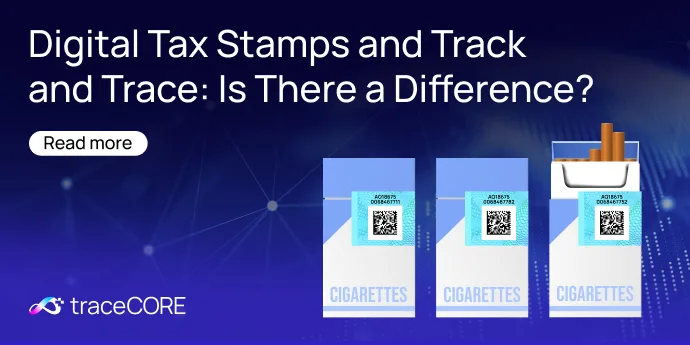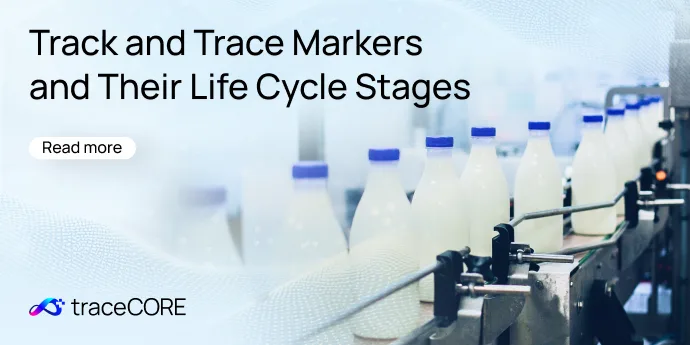Pharmaceutical Track and Trace
Monitor the movement of medications and get the information about each unit at every location.
Book a demo
Over 1 million deaths per year worldwide result from substandard or falsified medicines.
The UNOCD estimates that counterfeit medicines claim the lives of up to half a million people in sub-Saharan Africa alone each year.
According to WHO, 1 in 10 medicines in low- and middle-income countries do not pass quality control tests, indicating they are substandard or counterfeit.
Counterfeit medicines include medicaments for serious diseases, such as malaria, HIV/AIDS and cancer. Key public health impacts of illicit pharmaceuticals trade are the toxicities and lack of efficacy, generating increases in mortality, morbidity and the prevalence of disease.
of medicines are substandard or falsified in low- and middle-income countries (NIH).
Is the value of a global trade in counterfeit pharmaceuticals (OECD/EUIPO).
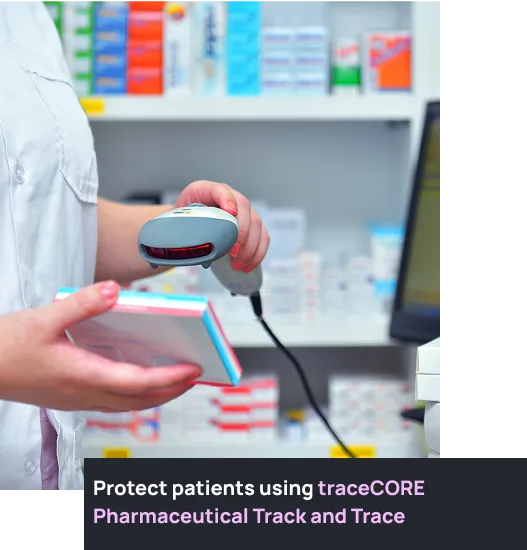
Use traceCORE Pharmaceutical Track and Trace to combat illicit medicine trade by closely monitoring each unit.
.webp)
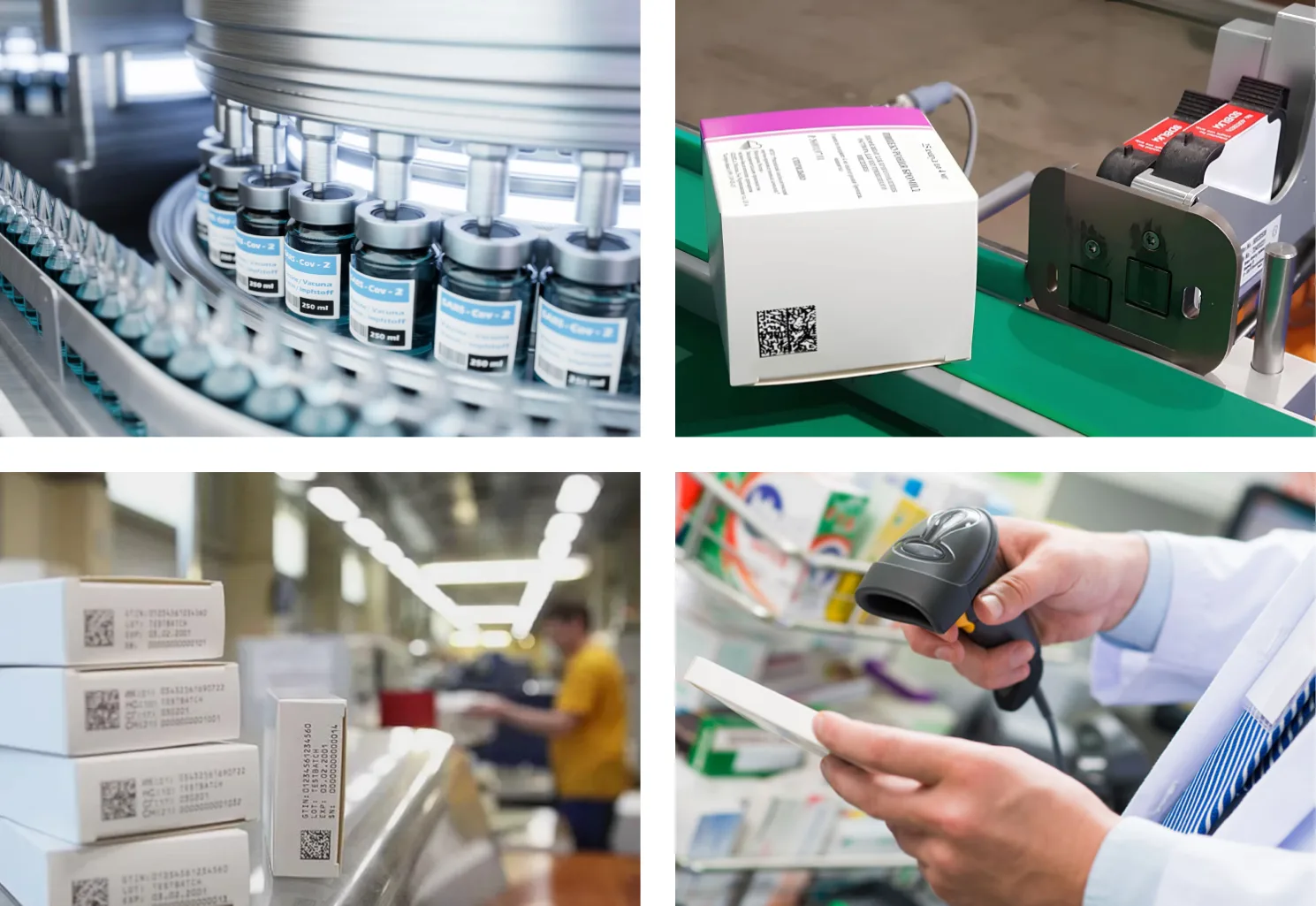
How does it work?
- Marking codes are assigned for each packaging level: primary packaging (one pill in the blister cell), secondary packaging (two blisters in one box, multi-pack (several boxes), case, pallet.
- Verify the origin and legitimacy of medications to prevent counterfeits.
- Monitor and ensure product quality at every stage from production to delivery. Meet legal requirements and industry standards efficiently.
- Gain real-time visibility into the movement and handling of medications.
- Quickly identify and withdraw affected batches to protect patient health.
- Optimize stock levels and reduce the risk of shortages or overstocking.
- Reduce the risk of theft and diversion through secure tracking.
Key features
Serialization
Each medication unit gets assigned a unique identifier — a two-dimensional DataMatrix code, which holds information like the drug name, lot number, expiration date, and manufacturer.
Data sharing
The captured data is uploaded to a secure database accessible by authorized parties. This allows stakeholders to track the movement of medications in real-time.
Data capture
At various stages in the supply chain, the unique code is scanned, and the data is captured. This could be at manufacturing, distribution centers, pharmacies, and even by patients themselves.
Recall management
If there's an issue with a specific batch of medication, the system can quickly identify all affected packages and generate targeted recalls to minimize harm.
Verification
The software allows verification of the medication's authenticity by checking the unique code against the database. This helps identify counterfeit drugs or those that may have been diverted from the legitimate supply chain.
Alerts
If there are any discrepancies, you will receive notifications. By detecting fakes right away, it's possible to take action and prevent them from getting to the pharmacy shelves.
A win-win solution for all stakeholders
Prevent medicine counterfeiting and protect patients in your country using traceCORE Pharmaceutical Track and Trace.

- Stronger public health protection. Reduces counterfeit drugs and diversion, safeguarding citizens.
- Enhanced regulatory oversight. Improves transparency and simplifies supply chain monitoring.
- Efficient recalls. Enables targeted actions for faster and more effective product recalls.
.svg)
- Enhanced authenticity verification. Track and trace systems provide verifiable proof that the medications are genuine.
- Reduced risk of legal issues. Being able to track every single unit helps mitigate legal disputes and protects sellers from liability related to counterfeit medicine.
- Improved client trust. Transparency in medicine origin strengthens relationships with patients and fosters a more secure environment.

- Increased confidence in product safety. Access detailed information about the origin and handling of medicine, ensuring it meets safety and quality standards.
- Enhanced transparency. Benefit from greater transparency in the supply chain, allowing consumers to make informed choices about the medicine they purchase.
- Protection against fraud. Be assured of the authenticity and integrity of medicine, reducing the risk of purchasing counterfeit items.
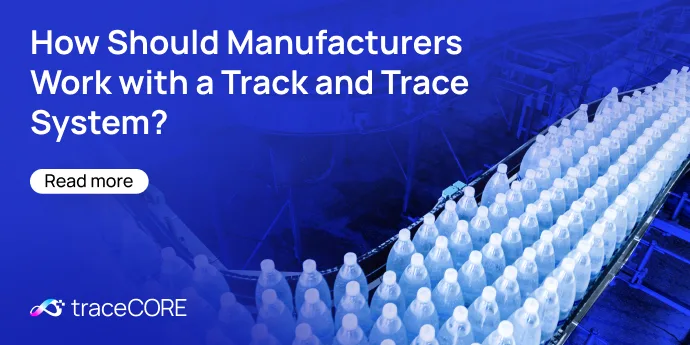
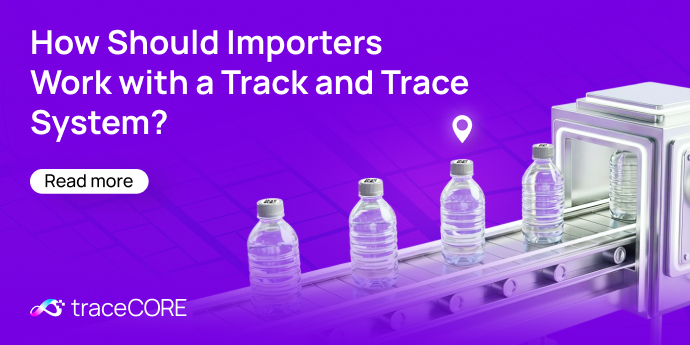
.webp)
.webp)
